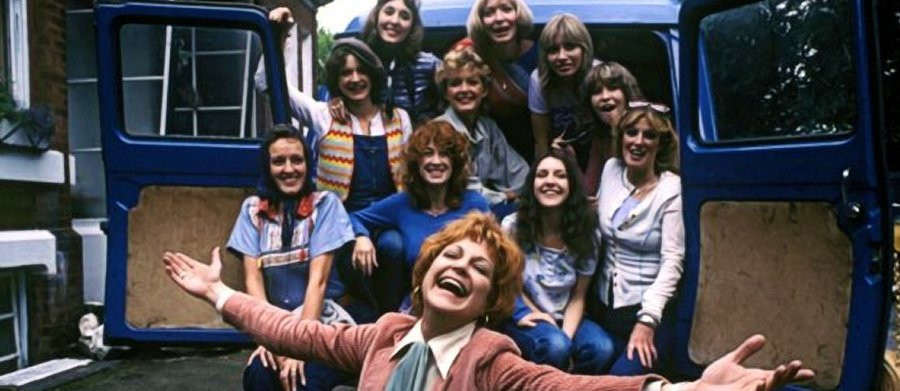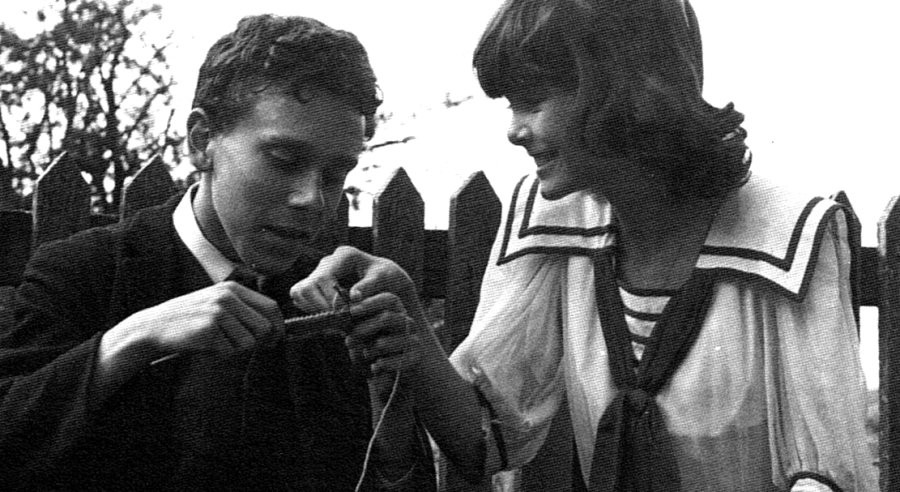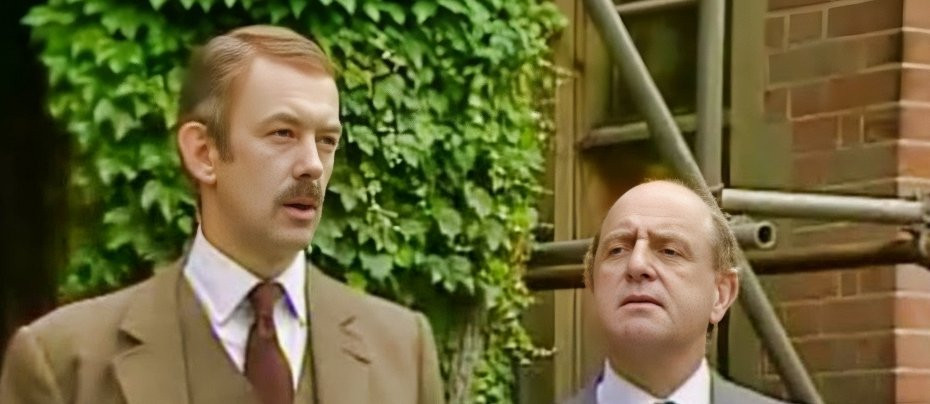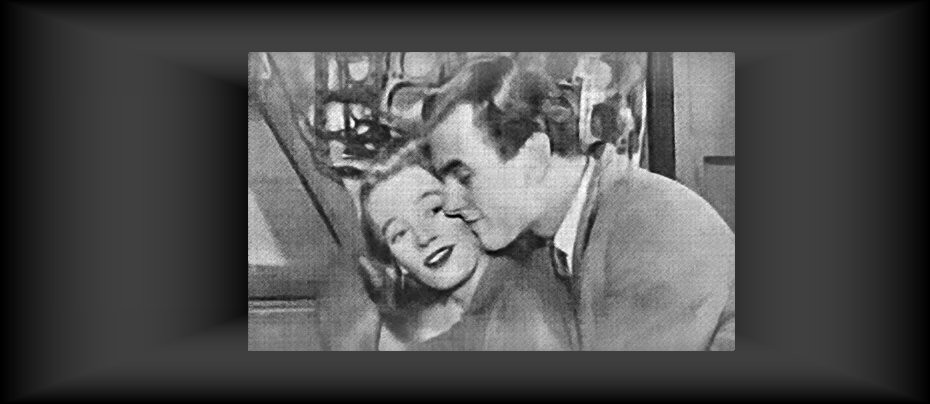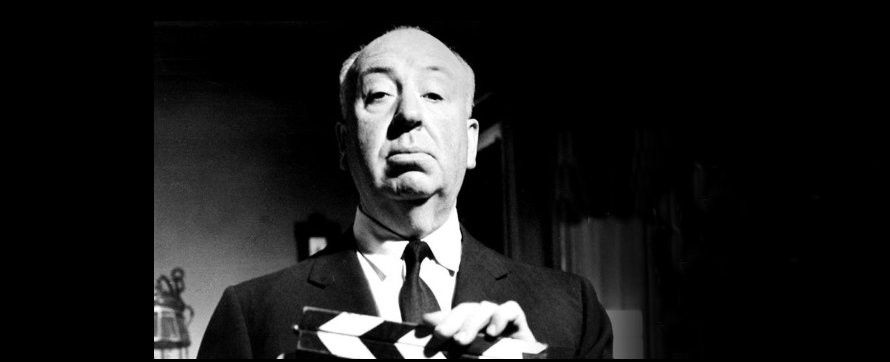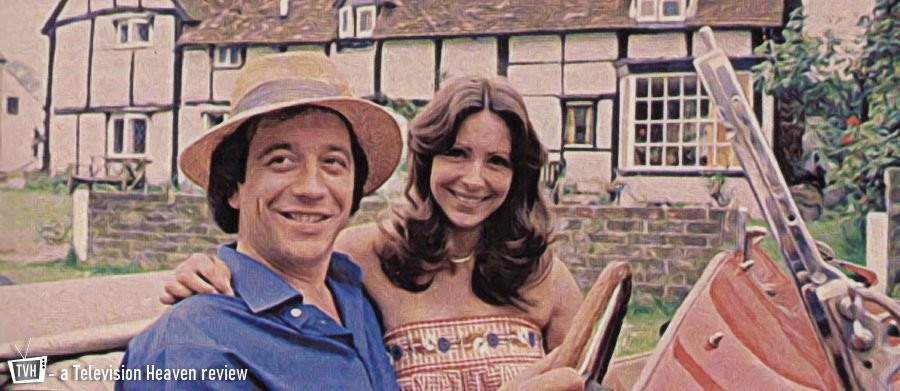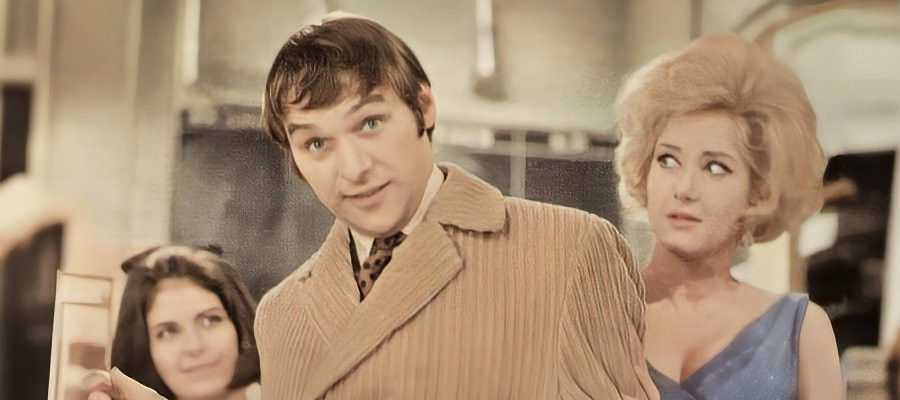
Mickey Dunne
1967 - United Kingdom1960s series that followed the misadventures of a gambling streetwise Cockney wide-boy who managed to survive on his wits and ‘gift of the gab’ as he picked his way from one female companion to the next whilst talking himself into as many free dinners as possible. And even though Mickey seldom came out on top his devil-may-care attitude was a typical exemplification of the way everyone expected a 1960’s ‘lad’ to be.
Just twelve months before, Michael Caine had enchanted the British movie-going public as Alfie, a character that came to epitomise the public conception of smooth Swinging Sixties masculine promiscuity. Alfie shamelessly moved from woman to woman making his tawdry sexual conquests whilst taking the audience into his confidence. But even with an assured familiarity of the sexually liberated times Alfie was not as worldly-wise as he would have liked us to believe and his naiveté gave his amoral character a warmth and ultimately tragic vulnerability.
Mickey Dunne was the TV version of Alfie and in similar vein to the Bill Naughton created character he would impart his sagacity to an eager home-watching audience: “If a chick is only going to give the come-on to a guy who’s going places – either give up or get going!”
The Radio Times gave more of an insight into Mickey in its 4 May 1967 edition by introducing its readers to Mickey thus:
Mickey was born in Bermondsey on September 4, 1938 – only child of Alf and Mavis Dunne. When the war came his father gave up his milk round and went off to exercise his talents as a barrack-room orator. Mavis and young Mickey were evacuated to Tiverton in Devon. They lived there with a retired antique dealer, Mr Pring, and his wife, Mrs Pring took the invasion in her stride, and life was happy there until 1944. Then one day Alf came home on forty-eight hours leave. Mavis went up to London to see him; and Mickey was orphaned by a bomb.
The Prings were fond of Mickey and they looked after him till the end of the war. Then Mickey’s future was taken over by the authorities. He went to an orphan school where he was popular. The time came for him to earn his living, and he drifted into lodgings. He tried a milk round like his father, but rising early didn’t suit his constitution. He became a bookie’s runner, drifted into a gang, and was thoroughly scared when they shamed him into helping them to do a “job” on a biscuit factory.
His former headmaster tried to guide Mickey into a steady job. So in 1955 he became a merchant seaman. He trotted the globe for three years, learned how to drink and gamble well – so well that he gave up the sea after coming home from one trip three-hundred-pounds to the good. This he used to set up as a professional punter. In a few months he was broke. Mickey had a love of antiques and made a living repairing them – soon he was sent off touring the country, picking up bargains. Then one fateful night he won four-hundred pounds in a poker school in Birmingham. He gave up work and paid three-hundred pounds key money for his present pad at Earls Court.
Ever since then he hasn’t worked at anything in particular for more than a week. Several times he has had to raise another stake – for example by taking a job in a pub, where he could draw in the customers by his charm and chat. But he can’t resist the temptation to blow his earnings on a “hot” tip from a customer.
Mickey is twenty-eight now, and looks like never growing up. He’s as gullible as they come, and full of an unselfish desire to help people in trouble – especially birds. He usually makes things much worse. He’s a loner and a loser, but without bitterness. He always bounces back like a rubber ball after every disaster. Mickey’s got just one problem: his heart’s too big.
The BBC pushed the publicity boat out with this show giving it almost an article a week and always written in similar vein as if Mickey himself was narrating it: “If you’re betrothed to a gin-swilling octopus there’s very little room for movement. It’s enough to make a man spit walnuts!”. “Once Again I’m In Schtookland. The sun is shining, the birds chirruping and all is well with the world … Except that I’m broke, busted, out of currency. This isn’t going to turn my silky barnet grey with worry, though apart from owing a few akkers to my landlord, tailor, wine merchant and bookmaker, I’m otherwise financially well situated. I have however arranged to wine and dine an especially delightful chick this evening. Carol, my bookmaker’s daughter. I’ve got to raise some loot, but how? Well, there’s Bones Rhinhart. Bones might … No, Bones lost his gold cuff links to me in a card game the other night. Someone at the door – Inky Foss The Forger – he’s calling to collect the tanner I borrowed. I relate my lamentable circumstances and he has, it seems, the answer to our predicament. Red Magpie, a nag which has had the needle, is going to trot in this afternoon at a big price. If I can find somebody foolish enough to stand me a fiver to win, all out troubles are over.
“Inky leaves and I get on the blower to Sammy, Carol’s poppa, and after convincing him that I had a milk and honey run at the Lucky Spoon Club last night and will shortly be in to pay him, get him to take the bet. My future is bright, my prospects limitless, until wandering off to a neighbourhood betting shop where I hear that Red Magpie has been beaten a whisker in a photo-finish, and I’m once again in schtookland. How am I going to wine and dine Carol? I’ve got it! I’ll take her to Luigi’s. But I already owe Luigi for three nosh-ups, Patsy, Josie and that little blonde chemmy dealer. Still, if I can get Luigi’s wife Anna to serve me I can hold her hand and whisper promises of payment into her shell like, and being a woman she’ll understand. Back at the pad I change into my new midnight blue mohair lot, pick up Carol and whiz her off to Soho to introduce her to Anna … But no Anna! Only Luigi and he looks at me like I’ve come to pay him the money I owe him!”
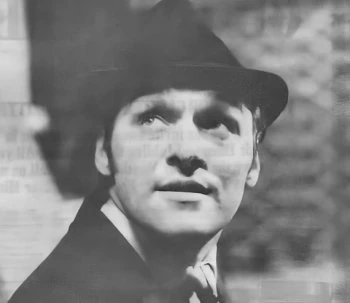
Portraying Mickey on screen was 34 year-old Dinsdale Landen already a veteran of numerous TV series although this was his first ‘centre stage’ role. “Mickey Dunne is so good for me,” Landen told the Radio Times back in 1967. “I am a chronic worrier. I have so many worries I can’t fit in another for a fortnight. That’s why Mickey Dunne is so good for me. He’s the opposite – a gambler who doesn’t let things bother him. He has great taste and I like him.”
Unfortunately, as much as Landen may have enjoyed Mickey’s company it seems as though the British viewing public did not. The subject material meant that the BBC gave the series a late time slot airing from May 8th 1967 at 9:40 – 10:30 pm. Produced by John Frankau it also boasted a healthy array of guest stars including Liz Fraser, Charles Tingwell, Nigel Davenport, Jack Watling, Imogen Hassell, Clive Dunn, Ray Brooks, Judy Geeson, John Scott-Martin, Jennie Linden, Georgina Hale, Ronald Radd, Jack Woolgar, John Junkin, Isla Blair, Glyn Houston, Dudley Foster, Nosher Powell, Patsy Ann Noble, Anna Carteret, George Pravda, Denise Coffey, Desmond Llewellyn, Judy Cornwell, and Johnny Briggs. But it wasn’t enough to see it beyond 14 episodes the last of which was shown in August of that year.
It is unclear as to whether or not the series has survived in the BBC archives.
Available Episode Information:
1. Big Fleas, Little Fleas
If you're betrothed to a gin-swilling octopus there's very little room for movement. It's enough to make a man spit walnuts!
2. If Anyone Calls – I’m in the Doghouse
If a high-stopping pop-mad dolly thinks you’re useless, it may be better to keep your mouth shut than open it in vain!
3. Details unavailable
4. My Pal Fred
5. Yes – But Can He Go The Distance?
If a chick is only going to give the come-on to a guy who’s going places – either give up or get going!
6. No Flowers by Request
7. Come On In, the Water’s Fine
When two beautiful chicks tuck themselves into your flat – it may not be just one too many!
8. A Handful of Coloured Chalks
If a bird’s prepared to model for your mistaken identity don’t confuse your heart with your pallet!
9. Over the Hill
If a friend needs help – you help, even if it means betting against yourself – that’s life.
10. The Hon. Bird
’I mean to say if she’s rich and innocent and lovely – well if she’s titled and innocent and lovely – well anyway if she’s lovely, she must be honest – mustn’t she?
11. The Stationary Tenants
When a party gets out of hand and a poker hand doesn’t play true and your girl walks out, you may as well be thrown out in the street – but then where could you invite anyone to play?
12. You Scratch My Back, I’ll Scratch Yours
When your girlfriend wants you to pose as the fiancé of her girlfriend and another old friend wants you to bury her father and share her life and . . . there’s no good denying you’re in dead schtook!
13. Are there any More at Home Like You?
Trying to help an innocent doll escape the clutches of her evil family of hoods can prove to be a very dangerous occupation in which to be hoist by one’s own petard.
14. The Tar Baby
If you’re taken for a ride by brigands, however fair, you must expect to get saddle-sore.
Seen this show? How do you rate it?
Seen this show? How do you rate it?
Published on January 4th, 2019. Written by Laurence Marcus (9 April 2006). With thanks to Tim Trounce and John Archbold for tracking down reference material, articles and pictures for Television Heaven.



